#devops consulting services
Explore tagged Tumblr posts
Text
Top FAQs about Azure DevOps Consulting

The complexity of modern software development is overwhelming you, don't you think? Do you want to increase output and simplify your processes? Azure DevOps can assist! To help you understand how Azure DevOps consulting can help your business, this blog article answers the most common questions regarding it.
Here are the key factors: ➡️ You can create automated testing and deployment pipelines, train your teams on best practices, and set up and configure DevOps services with the assistance of Azure DevOps specialists.
➡️ Businesses encounter difficulties with integration, security issues, and cultural opposition to change. You can overcome these obstacles by using consulting services.
➡️ Security is a top priority, and to guarantee compliance, consultants integrate security principles into your development pipeline.
➡️ It uses several features to optimize CI/CD pipelines for scalability and performance, and integrates with other tools.
Azure DevOps consulting might be a great help if you're trying to start from scratch or improve your current DevOps procedures.
Are you prepared to find out more? For a more thorough discussion of these subjects, visit the blog post!
4 notes
·
View notes
Text
Unveiling the Wonders of DevOps: Exploring Benefits and Challenges in Simple Language
Hello tech enthusiasts! If you've ever been curious about DevOps and desire a clear breakdown of its advantages and drawbacks, you're in for a treat. Let's dive into the marvels and obstacles of DevOps using plain and simple language from The Best Devops Training Institute in Bangalore.

The Upsides: Embracing the Magic of DevOps
1. Swift Software Delivery:
The Marvel: DevOps functions like a magician's wand, hastening the pace of software development and delivery. Updates and features roll out faster, ensuring you stay agile in the ever-evolving tech landscape. I will highly recommend the best Devops Course in Bangalore.
Why It's Fantastic: Quick updates keep you relevant and adaptable in a fast-paced digital world.
2. Team Collaboration Triumphs:
The Marvel: In the DevOps universe, developers and operations teams become dynamic partners. No more working in isolation; they team up to eliminate obstacles and ensure a seamless flow of creativity and technical expertise.
Why It's Fantastic: Team synergy fosters innovation, leading to more robust and inventive software.
3. Reduced Glitches, Enhanced Stability:
The Marvel: Similar to a flawless spell, DevOps minimizes software glitches. It's a time-saver, making your software more dependable.
Why It's Fantastic: Spending less time troubleshooting issues means more time for creating exceptional software.
4. Automation Magic:
The Marvel: Just like a magical incantation, mundane tasks can be automated with DevOps. This translates to less time devoted to routine chores and more time for imaginative and impactful work.
Why It's Fantastic: Automation liberates you from the shackles of repetitive tasks, unleashing your creative potential.
5. Continuous Feedback Loop:
The Marvel: DevOps comes with a built-in oracle, offering insights into how changes impact the software. This continuous learning loop facilitates ongoing improvements.
Why It's Fantastic: Learning from every step ensures a software evolution that continually enhances.
6. Innovation Boost:
The Marvel: DevOps doesn't just deliver software; it fosters a culture of continuous improvement and innovation. Your software stays ahead with the latest and most exciting features.
Why It's Fantastic: Embracing innovation keeps your software at the forefront of the industry.
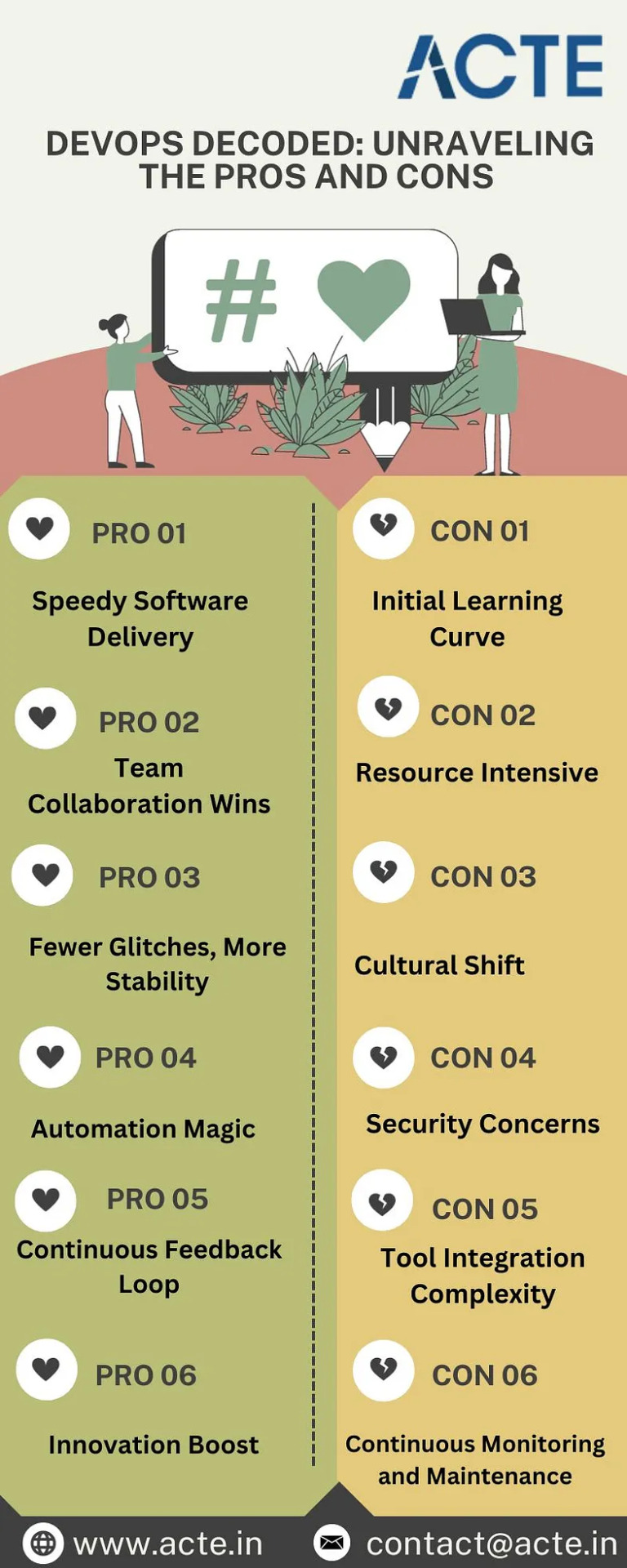
The Downsides: Navigating the Challenges of DevOps
1. Initial Learning Curve:
The Challenge: Implementing DevOps demands a shift in mindset and practices, leading to an initially steep learning curve.
Navigating It: Invest time in training and ensure everyone is on board to ease into the new DevOps culture.
2. Resource Intensive:
The Challenge: Adopting DevOps can require significant resources, from tools to skilled personnel.
Navigating It: Plan the transition carefully, allocate resources wisely, and consider gradual implementation.
3. Cultural Shift:
The Challenge: DevOps isn't just about tools; it's a cultural shift. Resistance to change can pose a stumbling block.
Navigating It: Communicate the benefits, involve the team in decision-making, and cultivate a collaborative culture.
4. Security Concerns:
The Challenge: The speed of DevOps can raise concerns about security lapses.
Navigating It: Integrate security measures into the DevOps pipeline and prioritize continuous security testing.
5. Tool Integration Complexity:
The Challenge: Integrating different tools in the DevOps toolchain can be complex.
Navigating It: Choose tools wisely, ensure compatibility, and provide training for seamless integration.
6. Continuous Monitoring and Maintenance:
The Challenge: DevOps requires continuous monitoring and maintenance, adding an ongoing responsibility.
Navigating It: Establish robust monitoring practices and allocate resources for ongoing maintenance.
Conclusion: Navigating the DevOps Journey
In the captivating realm of DevOps, the advantages are enchanting, offering speed, collaboration, and innovation. However, like any journey, challenges are present. The key lies in understanding and addressing these challenges, embracing the cultural shift, and crafting a DevOps strategy aligned with your team's goals. So, gear up, embrace the magic, and embark on a DevOps journey that transforms the way you create and deliver software!
2 notes
·
View notes
Text
DevOps Consulting Services | Goognu - Transforming Your Business with DevOps Solutions
Goognu offers top-notch DevOps consulting services to help businesses streamline their software development and operations. Our expert team provides comprehensive solutions for implementing DevOps practices, optimizing workflows, and automating processes. Boost your productivity, agility, and efficiency with our tailored DevOps strategies. Contact us today for a consultation and take your business to new heights with Goognu's industry-leading DevOps expertise.
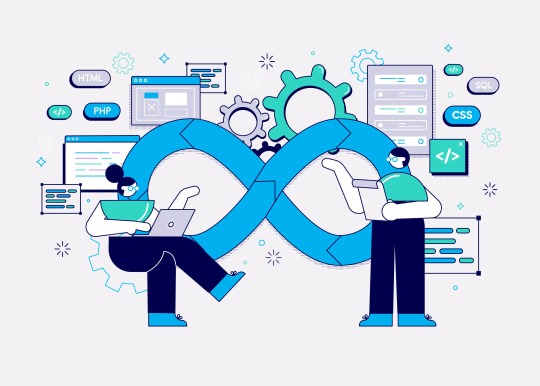
3 notes
·
View notes
Text
Embrace DevOps Excellence with Goognu's Consulting Services
Unlock your business's full potential with Goognu's DevOps consulting services. Embrace DevOps excellence, enhance collaboration, increase efficiency, and improve customer experience. Contact us today!

1 note
·
View note
Text
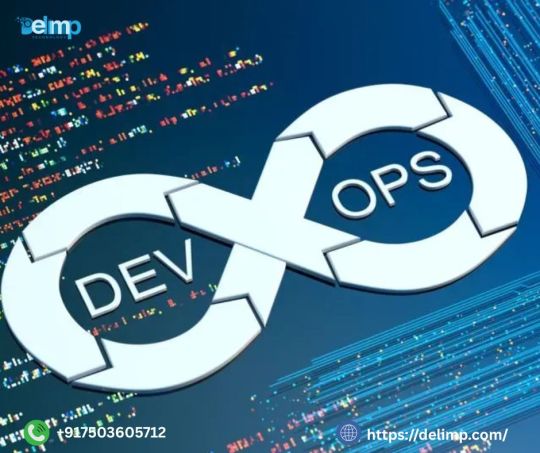
Streamline innovation adoption and reap all the benefits of DevOps consulting services from Delimp Technology. With solid Scrum and Agile expertise, we harness the latest practices to combine development and operations processes and create automated, continuous, fluent, and secure workflows. DevOps expedites software release, boosts time-to-market, enables flexibility and adaptability to market changes.
0 notes
Text

Partner with us to realize the complete capabilities of DevOps and fast-track your progress toward ongoing enhancement and operational excellence. Read More...
0 notes
Text
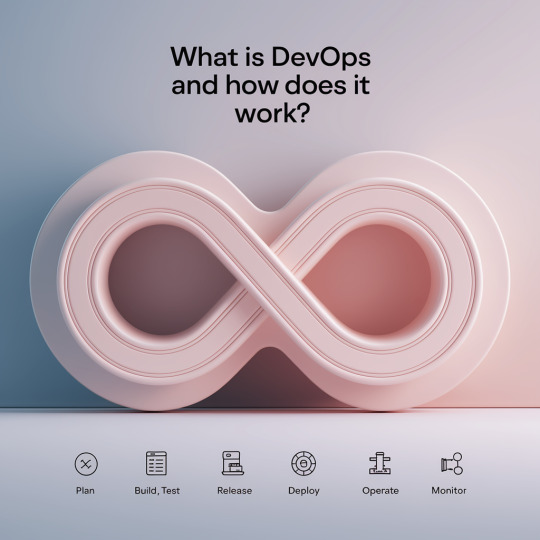
Visit Cloudastra Technology: Cloudastra DevOps as a Services to learn how tailored DevOps solutions can help your business scale faster and smarter.
#what is devops#devops engineer#devops engineer salary#devops tools#devops meaning#devops interview questions#devops engineer jobs#devops certification#devops jobs#devops services#devops consulting services
0 notes
Text
Mindfire Solutions is a trusted IT partner offering cutting-edge software development solutions tailored to diverse business needs. With expertise across modern technologies, the company helps enterprises accelerate their digital transformation. Among its key offerings are DevOps services, enabling seamless collaboration between development and operations teams. These DevOps services ensure faster delivery cycles, improved system reliability, and enhanced scalability—empowering businesses to innovate with confidence in today’s dynamic digital landscape.
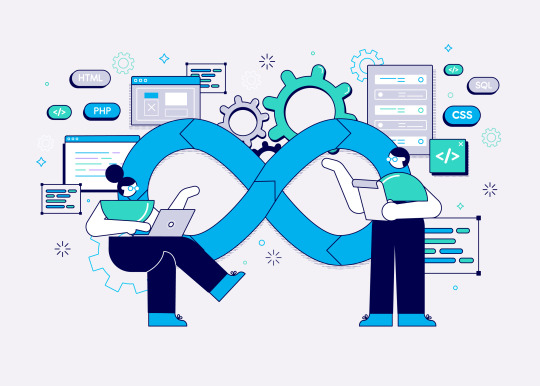
0 notes
Text
GitOps for Kubernetes: The Future of Infrastructure as Code
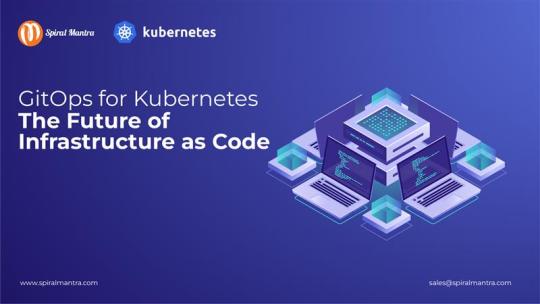
GitOps automation, Kubernetes, and Infrastructure as Code have become a pillar of the modern DevOps landscape. On the other hand, the convergence of “GitOps for Kubernetes” has significantly emerged as a transformative approach to executing operations. Considering the usage, then IaC refers to managing the data infrastructure of any organization via machine-readable files. At the same time, Kubernetes is a container orchestration platform used to deploy and scale containerized applications.
As companies increasingly adopt cloud-native operations, the requirement for prominent DevOps Consulting Services is growing to secure reliable and scalable infrastructure management. Additionally, GitOps in the complete scenario represents a paradigm shift to force Git repositories for declarative infrastructure and application definitions. No one can deny the fact that the software deployment process has been revolutionized; thus, tools like Helm and Terraform facilitate GitOps for Kubernetes, streamlining software and application delivery lifecycle throughout various stages – development, testing, and deployment/production.
Understanding GitOps in the Kubernetes Ecosystem
GitOps has gained maximum engagement, as it extends its principles for the DevOps Services Company by leveraging them to implement version control practices on the existing data infrastructure management. To deep devolve, then GitOps treats IAC configurations, and later stores them in repositories, allowing the GitOps automation process to synchronize with the desired state of Kubernetes clusters. The approach is necessary to eliminate the traditional deployment model and replace it with a pull-based system, aiding in monitoring Git repositories continuously.
Considering the workflow, GitOps adheres to a powerful pattern, where developers are required to make necessary infrastructure changes, and with the automated process, repositories will validate, test, and deploy the action changes to the Kubernetes clusters.
The Technical Architecture of GitOps Automation
GitOps automation depends on multiple key components to establish seamless infrastructure management. These start with Git repositories containing Helm charts, YAML manifests, and customized configurations, which define the application infrastructure and state by implementing tools like Flux, ArgoCD, or Jenkins X.
Whenever discrepancies are detected, the GitOps automation system begins its reconciliation process to fetch the cluster from the repository and align it to get synchronized results. The process eventually ensures that all the changes revert automatically to the cluster, maintaining its consistency on the containerized app container while preventing configuration drift.
Modern GitOps implementation unifies the monitoring and observability features, which fosters running and provides real-time insights by understanding the deployment status and system performance, along with the application's health. These capabilities allow DevOps engineers to seamlessly identify and resolve encountered bugs while maintaining audit trails in every infrastructure change made by the DevOps engineer.
Transforming DevOps Practices with GitOps
In recent years, the adoption of GitOps has significantly represented the evolution in executing major DevOps practices and methodologies, while addressing multiple challenges associated with software deployment. DevOps consulting services like Spiral Mantra recommend GitOps for DevOps practices, enabling them to improve their clients’ deployment reliability with operational efficiency. The declarative nature of Git + Operations has significantly eliminated the need for complex software deployment scripts by reducing the risks associated with manual intervention in critical operations.
Further, it accelerates the collaboration between operations and development teams by providing insights into infrastructure management, where developers can easily propose major changes by utilizing features like merge processes, pull requests, and code reviews by utilizing Git workflows. The approach is impactful to democratize infrastructure management while adhering to and maintaining appropriate security and governance controls.
The GitOps automation for Kubernetes with the existing CI CD pipelines executes a comprehensive framework for automation, relying on extending the horizons of code commit to final software production deployment. DevOps services company implements the best practices of DevOps consulting to create end-to-end CI CD automation pipelines using the latest technologies and skills.
Security and Compliance Advantages
The practice of managing the infrastructure of application configurations has inherently strengthened the security parameters within the deployment processes. Custom deployment methods often require production environments to create potential security vulnerabilities. Further, within the cluster boundary, pulling changes drawn from external repositories can allow the developer to access tokens. However, securing the Git-based approach allows access to comprehensive audit trails by documenting the required changes with specific modifications to implement. Additionally, it facilitates to implementation of policy-as-code practices, where data security policies should be defined declaratively and enforced automatically across all deployments.
Best Practices and Considerations for Kubernetes
Businesses should initiate the process by establishing clear repository structures, separating the application code from the existing infrastructure configurations, and allowing teams to manage and maintain their respective domains and system coherence.
On the other hand, environment promotion strategies have become a crucial factor for Kubernetes and IaC implementations, as many companies are looking to have a repository-based approach to circulate and manage varied deployment stages. The choice amongst these strategies varies from organizational structure to security requirements and deployment pipeline complexity.
Modern solutions integration with management systems can securely retrieve the data during the software deployment phase; thus, companies like Spiral Mantra have developed erudite approaches helping to maintain security while preserving Kubernetes automation benefits.
The Future Landscape of Infrastructure as Code
Kubernetes and Infrastructure as Code represent more than just a deployment methodology, as they exemplify automated infrastructure management aligning with the cloud-native principles. With advanced features like multi-cluster management and progressive delivery, IaC practices are becoming increasingly adopted by companies.
The incorporation of ML and AI solutions into infrastructure as code workflows promises to enhance further by adding automation capabilities, and predictive deployment strategies with automated performance optimization to detect and resolve data issues on time.
0 notes
Text
Why DevOps and Microservices Are a Perfect Match for Modern Software Delivery
In today’s time, businesses are using scalable and agile software development methods. Two of the most transformative technologies, DevOps and microservices, have achieved substantial momentum. Both of these have advantages, but their full potential is seen when used together. DevOps gives automation and cooperation, and microservices divide complex monolithic apps into manageable services. They form a powerful combination and allow faster releases, higher quality, and more scalable systems.
Here's why DevOps and microservices are ideal for modern software delivery:
1. Independent Deployments Align Perfectly with Continuous Delivery
One of the best features of microservices is that each service can be built, tested, and deployed separately. This decoupling allows businesses to release features or changes without building or testing the complete program. DevOps, which focuses on continuous integration and delivery (CI/CD), thrives in this environment. Individual microservices can be fitted into CI/CD pipelines to enable more frequent and dependable deployments. The result is faster innovation cycles and reduced risk, as smaller changes are easier to manage and roll back if needed.
2. Team Autonomy Enhances Ownership and Accountability
Microservices encourage small, cross-functional teams to take ownership of specialized services from start to finish. This is consistent with the DevOps principle of breaking down the division between development and operations. Teams that receive experienced DevOps consulting services are better equipped to handle the full lifecycle, from development and testing to deployment and monitoring, by implementing best practices and automation tools.
3. Scalability Is Easier to Manage with Automation
Scaling a monolithic application often entails scaling the entire thing, even if only a portion is under demand. Microservices address this by enabling each service to scale independently based on demand. DevOps approaches like infrastructure-as-code (IaC), containerization, and orchestration technologies like Kubernetes make scaling strategies easier to automate. Whether scaling up a payment module during the holiday season or shutting down less-used services overnight, DevOps automation complements microservices by ensuring systems scale efficiently and cost-effectively.
4. Fault Isolation and Faster Recovery with Monitoring
DevOps encourages proactive monitoring, alerting, and issue response, which are critical to the success of distributed microservices systems. Because microservices isolate failures inside specific components, they limit the potential impact of a crash or performance issue. DevOps tools monitor service health, collect logs, and evaluate performance data. This visibility allows for faster detection and resolution of issues, resulting in less downtime and a better user experience.
5. Shorter Development Cycles with Parallel Workflows
Microservices allow teams to work on multiple components in parallel without waiting for each other. Microservices development services help enterprises in structuring their applications to support loosely connected services. When combined with DevOps, which promotes CI/CD automation and streamlined approvals, teams can implement code changes more quickly and frequently. Parallelism greatly reduces development cycles and enhances response to market demands.
6. Better Fit for Cloud-Native and Containerized Environments
Modern software delivery is becoming more cloud-native, and both microservices and DevOps support this trend. Microservices are deployed in containers, which are lightweight, portable, and isolated. DevOps tools are used to automate processes for deployment, scaling, and upgrades. This compatibility guarantees smooth delivery pipelines, consistent environments from development to production, and seamless rollback capabilities when required.
7. Streamlined Testing and Quality Assurance
Microservices allow for more modular testing. Each service may be unit-tested, integration-tested, and load-tested separately, increasing test accuracy and speed. DevOps incorporates test automation into the CI/CD pipeline, guaranteeing that every code push is validated without manual intervention. This collaboration results in greater software quality, faster problem identification, and reduced stress during deployments, especially in large, dynamic systems.
8. Security and Compliance Become More Manageable
Security can be implemented more accurately in a microservices architecture since services are isolated and can be managed by service-level access controls. DevOps incorporates DevSecOps, which involves integrating security checks into the CI/CD pipeline. This means security scans, compliance checks, and vulnerability assessments are performed early and frequently. Microservices and DevOps work together to help enterprises adopt a shift-left security approach. They make securing systems easier while not slowing development.
9. Continuous Improvement with Feedback Loops
DevOps and microservices work best with feedback. DevOps stresses real-time monitoring and feedback loops to continuously improve systems. Microservices make it easy to assess the performance of individual services, find inefficiencies, and improve them. When these feedback loops are integrated into the CI/CD process, teams can act quickly on insights, improving performance, reliability, and user satisfaction.
Conclusion
DevOps and microservices are not only compatible but also complementary forces that drive the next generation of software delivery. While microservices simplify complexity, DevOps guarantees that those units are efficiently produced, tested, deployed, and monitored. The combination enables teams to develop high-quality software at scale, quickly and confidently. Adopting DevOps and microservices is helpful and necessary for enterprises seeking to remain competitive and agile in a rapidly changing market.
#devops#microservices#software#services#solutions#business#microservices development#devops services#devops consulting services
0 notes
Text
Imagine launching an update and it just works.
SDH's CI/CD pipelines catch issues before they reach users. Reliable, repeatable deployments — that’s the SDH promise.
0 notes
Text
#Devops Development Company USA#DevOps Consulting Services#Azure Development Company in USA#Cloud Consulting Company USA#Azure Cloud Consulting Service
0 notes
Text
Build, Test, Deploy—Faster. Smarter. With DevOps Consulting
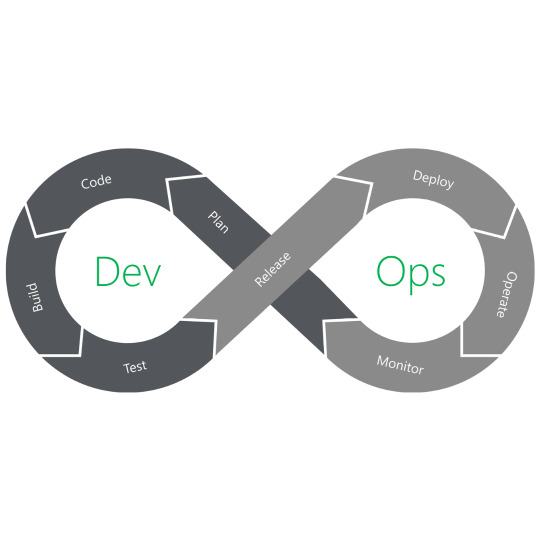
In the age of rapid digital transformation, speed and agility have become essential for business survival. But with complexity increasing across software development pipelines, how can you ensure fast, error-free releases without compromising stability? The answer lies in DevOps—and more specifically, in expert DevOps consulting services that help organizations implement smart, scalable, and automated development workflows.
In this article, we’ll explore how DevOps consulting accelerates your build-test-deploy cycle, improves collaboration between teams, boosts software quality, and empowers your business to innovate faster.
What Is DevOps and Why Does It Matter?
DevOps is a set of practices and cultural philosophies that unify software development (Dev) and IT operations (Ops). The goal is to shorten the development lifecycle, increase deployment frequency, and deliver robust, high-quality software.
Traditional development teams worked in silos: developers wrote the code, and operations teams deployed and maintained it. This led to delays, miscommunication, and finger-pointing when things went wrong.
DevOps breaks down these silos by encouraging:
Continuous integration and continuous delivery (CI/CD)
Automation of testing and deployment
Real-time monitoring and feedback
A culture of shared ownership and responsibility
When implemented well, DevOps can reduce deployment time from days to minutes, improve code quality, and boost team morale.
Why Your Business Needs DevOps Consulting
While the benefits of DevOps are widely known, successful implementation is not always straightforward. That’s where DevOps consulting services come in. A DevOps consultant assesses your current setup, identifies bottlenecks, and builds a tailored roadmap for success.
Here’s how DevOps consultants help you move faster—and smarter:
1. Assessment and Strategy Development
Every organization is different. DevOps consultants begin with a detailed assessment of your infrastructure, team capabilities, and current workflows. They then build a custom DevOps roadmap aligned with your business goals.
This strategic blueprint outlines:
The best tools and technologies for your environment
Key automation opportunities
A phased approach to CI/CD adoption
Security and compliance integration
2. Automated Builds and Continuous Integration
Manually integrating code changes is not just slow—it’s error-prone. DevOps consultants set up CI pipelines that automatically build and test new code every time a developer commits changes.
Benefits include:
Instant feedback on code issues
Reduced integration headaches
Early bug detection
Faster iterations
With CI, developers can focus on writing better code rather than fixing last-minute integration issues.
3. Smarter Testing with Automation
Testing is often a bottleneck in traditional release cycles. DevOps consultants automate unit tests, integration tests, and even UI testing to ensure bugs are caught early and frequently.
Smart testing practices include:
Shift-left testing (testing earlier in the lifecycle)
Parallel test execution
Real-time test reporting
Quality gates in pipelines
The result? Higher test coverage, fewer regressions, and more confidence in every release.
4. Rapid Deployment Through CI/CD Pipelines
Gone are the days of manual releases. DevOps consulting services help you implement continuous delivery (CD) pipelines that automate the entire deployment process, from code commit to production.
These pipelines:
Deploy to staging or production environments automatically
Roll back changes instantly if issues arise
Support blue/green or canary deployments
Integrate with container orchestration platforms like Kubernetes
The upshot: release more often, with less risk.
5. Infrastructure as Code (IaC)
DevOps consultants introduce Infrastructure as Code tools like Terraform, Ansible, or AWS CloudFormation to manage infrastructure with code. This allows your team to:
Provision environments on-demand
Eliminate manual configuration errors
Version-control infrastructure changes
Scale systems quickly and reliably
IaC also plays a crucial role in cloud migration and hybrid cloud strategies, making your infrastructure as agile as your applications.
Real Business Outcomes from DevOps Consulting
Still wondering if DevOps consulting is worth the investment? Here’s what businesses typically achieve after adopting DevOps with the help of consultants:
70% faster deployment cycles
Fewer bugs in production due to automated testing
Increased developer productivity and happier teams
Stronger collaboration between development, QA, and operations
Higher customer satisfaction with faster feature releases
Choosing the Right DevOps Consulting Partner
Not all DevOps consultants are created equal. When choosing a partner, look for:
✅ Proven experience across industries and platforms
✅ Tool-agnostic approach that fits your tech stack
✅ Expertise in cloud platforms like AWS, Azure, or Google Cloud
✅ Strong communication and change management skills
✅ A focus on upskilling your internal teams
Great consultants don’t just deliver solutions—they empower your teams to maintain and improve them long after the engagement ends.
The Future of DevOps: AI, Observability, and GitOps
As DevOps continues to evolve, consultants are helping organizations adopt cutting-edge practices like:
AI/ML in DevOps (AIOps): For predictive monitoring and smarter automation
GitOps: Managing infrastructure using Git as the single source of truth
Advanced Observability: Real-time insights into application performance and user experience
Forward-looking businesses are already leveraging these trends to stay ahead of the curve.
Final Thoughts: Go Faster. Go Smarter.
Whether you’re a startup scaling fast or an enterprise modernizing legacy systems, DevOps consulting can make a measurable impact on your software development lifecycle.
From faster builds to automated testing and seamless deployments, DevOps consultants help you turn complexity into clarity—and ideas into innovation.
If you're ready to build, test, and deploy faster, don't go it alone. Partner with DevOps experts who understand your challenges and know how to solve them smartly and sustainably.
0 notes
Text
DevOps Consulting Services
At Sierra-Cedar, we understand the importance of reliable and efficient DevOps consulting services. Our journey towards cloud infrastructure began in 2015, and we continue to strive for excellence in providing transformative solutions for our clients.
0 notes
Text

Visit Cloudastra Technology: Cloudastra DevOps as a Services to learn how tailored DevOps solutions can help your business scale faster and smarter.
#what is devops#devops engineer#devops engineer salary#devops tools#devops meaning#devops interview questions#devops engineer jobs#devops certification#devops jobs#devops services#devops consulting services
0 notes